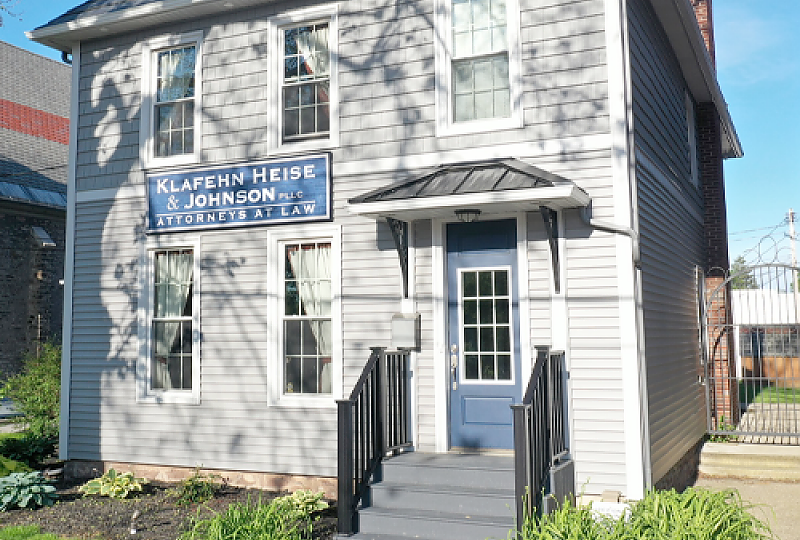What Are the Key Steps in the Probate Process Every Heir Should Be Aware Of?

The passing of a loved one is a deeply emotional experience. Amidst the grief and remembrance, a complex and sometimes daunting process emerges – probate and estate administration. It's the legal journey that ensures a decedent's assets are appropriately distributed to their heirs. For many heirs, the world of probate can be unfamiliar territory. By understanding the key steps in this process, heirs can navigate it with more clarity and confidence. Firms like Klafehn, Heise & Johnson P.L.L.C., steeped in the nuances of Rochester's legal landscape, play a pivotal role in illuminating this path. Let's walk through the critical phases of the probate process.
1. Validating the Last Will and Testament
If the decedent left behind a will, the first step in the probate process is verifying its authenticity. This validation ensures the will adheres to New York State's legal guidelines. Once authenticated, the will serves as the primary guide for asset distribution. In cases without a will, intestate succession laws come into play, dictating the asset distribution based on the relationship of the heirs to the decedent.
2. Appointing the Executor or Personal Representative
The will typically designates an executor, responsible for managing and settling the decedent's estate. If no executor is named or if there's no will, the court appoints an administrator. It's the executor's/administrator's duty to shepherd the estate through the probate/administration process, ensuring assets reach the rightful heirs.
3. Cataloging the Estate's Assets
A comprehensive inventory of the decedent's assets forms the next step. This includes real estate properties, bank accounts, investments, personal items, and any other assets. Knowing the full breadth of the estate is crucial to ensure all assets are accounted for and correctly distributed.
4. Identifying and Notifying Creditors
The decedent's debts and liabilities must be settled before asset distribution to heirs. The executor is responsible for collecting information on all known creditors, and making sure they are paid in accordance with the law. In New York, creditors typically have a limited time frame to claim outstanding debts. Once valid claims are presented, they're settled using the estate's assets.
5. Paying Taxes and Final Bills
Before heirs receive their designated assets, the decedent's final bills and any estate taxes must be settled. Depending on the estate's size and complexity, this might involve state and/or federal estate taxes.
6. Distributing the Remaining Assets
With debts settled and bills paid, the executor then oversees the distribution of the remaining assets to the heirs as outlined in the will. In cases without a will, the New York State's intestate succession laws guide this distribution.
7. Closing the Estate
Once asset distribution is complete and all probate tasks fulfilled, the executor petitions the court to close the estate or files the appropriate paperwork to informally close the estate. This final step signifies the end of the probate/administration process, and the executor's/administrator's responsibilities are officially concluded.
Navigating Probate with Guidance
For many heirs, probate can seem like a labyrinth of legalities, especially when navigating it during a time of grief. It's easy to feel overwhelmed. This is where the invaluable role of a dedicated probate attorney comes into play. Firms like Klafehn, Heise & Johnson P.L.L.C., with their deep understanding of Rochester's probate intricacies, serve as beacons of clarity. They offer guidance at every stage of the process, ensuring that heirs and executors fulfill their responsibilities and that the decedent's wishes are honored.
Conclusion
The probate process, while intricate, is essential in ensuring that a decedent's legacy is passed on to their loved ones in a manner that aligns with their wishes and the law. While the steps might seem challenging, especially amidst the emotional aftermath of a loved one's passing, heirs and executors need not tread this path alone. In Rochester, NY, having a trusted legal partner like Klafehn, Heise & Johnson P.L.L.C. can make the journey smoother, more transparent, and in line with the ultimate aim – honoring the decedent's legacy and ensuring their heirs are cared for.
Legal Disclaimer: This article provides general information about practical strategies for estate planning and probate. It should not be construed as legal advice or a substitute for consulting with an attorney. Each individual's situation is unique, and laws can vary from state to state. For specific legal advice and guidance tailored to your transactions and circumstances, consult with the attorneys at Klafehn, Heise & Johnson PLLC. Portions of this account are considered ATTORNEY ADVERTISING under the New York State Unified Court System Rules of Professional Conduct (22 NYCRR Part 1200). Prior results do not guarantee a similar outcome.
‹ Back













